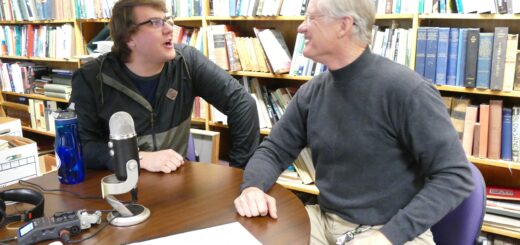Better Arguments Project approach offers us effective ways to build community
My friend Dr. June Darling has a wonderful habit of passing along nuggets of interesting perspective and wisdom. She has disciplined herself to apply a relentlessly constructive mindset to challenges — a practice that all of us could learn benefit from.
Her latest missive was a column in The Daily Good magazine recently about the Better Arguments Project, a collaboration by the Aspen Institute Citizenship and American Identity Program and other like-minded organizations.
The authors call out the contentious political climate we are in and the tendency to retreat from civic life because of the nastiness we see in social media and the like.
Instead of having fewer arguments, the Better Arguments Project is focused on helping communities have better arguments by teaching people how to have difficult conversations more constructively.
They discovered five principles that make arguments better and then tested their theory in a number of communities across the country.
Principle 1: Pay attention to context. If we’re going to have constructive dialogue on difficult issues, make sure that you start with the needs, culture and context of the community. In Denver, they explored tensions with housing, jobs and political power resulting from the recent technology boom there.
Principle 2: Take winning off the table. What they learned was that better arguments aren’t about winning and losing or converting the other side, but about the exchange of ideas and listening.
Principle 3: Prioritize relationships and listen passionately. Better arguments are “crafted to bring together people of diverse viewpoints who may not have engaged with each other before,” according to the Daily Good article.
Principle 4: Embrace vulnerability. A successful better argument creates opportunities for people to establish t rust and set norms. Honesty and vulnerability are key to meaningful dialogue.
Principle 5: Be open to transformation. A key tip is that they don’t focus on winning or finding resolution but instead engaging meaningfully with one another. They routinely ask participants to fill in the blanks on the following question: “I came in thinking _____; I’m leaving thinking ______ “and they report thoughtful reactions from those participating.
These principles are not new. They are the basis for mediation that organizations like the Wenatchee Valley Dispute Resolution Center use to help people figure out constructive solutions. It is also an approach that mirrors what the Our Valley Our Future effort is all about — forging strong relationships and working together to meet big challenges.
If we could find a way to put these principles into action on a consistent basis, we can construct a more robust and resilient community. We don’t have to succumb to the rancor that has infected the national conversation and instead take a more constructive path.
Here’s a link to the article: https://www.dailygood.org/2020/09/30/is-there-a-better-way-to-have-an-argument-/

